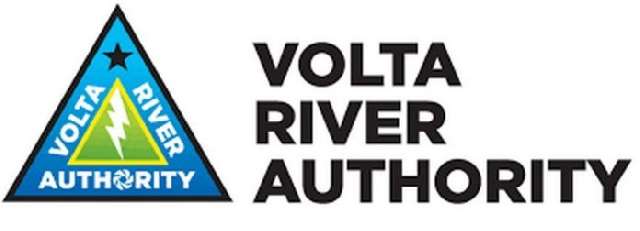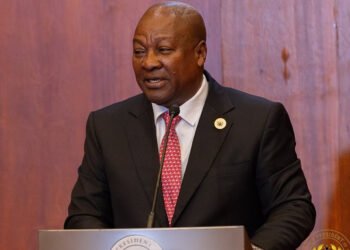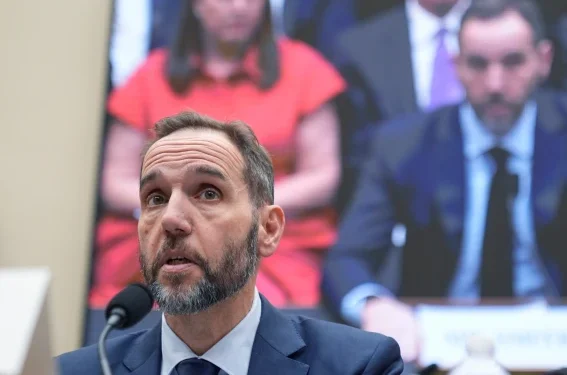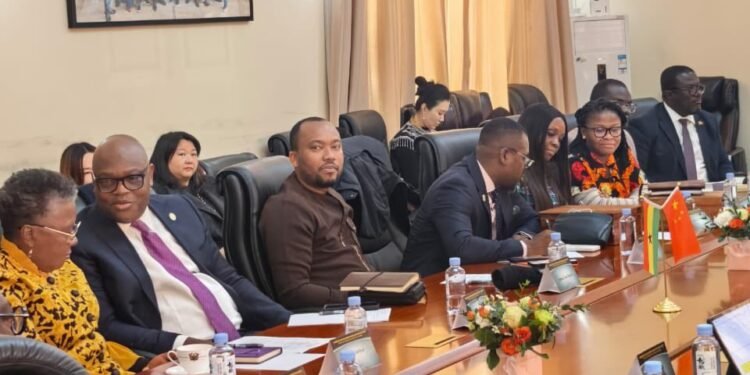The recent draft bill proposing the merger of the Volta River Authority (VRA) with the Bui Power Authority, alongside the Electricity Company of Ghana (ECG) with the Northern Electricity Distribution Company (NEDCo), and the creation of a separate Thermal Power Authority from VRA’s thermal plants, has sparked serious concern among staff groups within VRA.
In an emphatic statement, the staff groups expressed deep disappointment and raised critical objections, warning of the long-term consequences of such moves on the VRA and the broader Ghanaian populace.
At the heart of this issue is a fear that these actions are part of a broader agenda to privatize and sell off valuable national assets under the guise of efficiency and restructuring.
According to the statement issued by Theophilus Tetteh Ahia, National Chairman of SSA for and on behalf of VRA Staff Groups, the staff of VRA’s earlier concerns were not alleviated when they sought clarification from VRA’s management and board.
He pointed out that while the VRA Board Chairman had previously denied any intentions to privatize the Authority’s thermal plants, staff members later learned through media reports that plans were well underway to lay the bill before Parliament, a revelation that was met with a sense of betrayal.
“We wish to say here without any fear of contradiction that, the staff of VRA/NEDCo are key stakeholders in this issue and these very important and strategic decisions would significantly impact our lives yet have never been engaged to be part of the process. This action, in our view, is another diabolical scheme to hive-off the Thermal Department from VRA to make it extremely easy for a façade of privatization, so that faceless people/politicians would take over these very important Ghanaian assets.
“We the Staff of VRA, understand the operations of VRA and its assets so it would be out of place to sit unconcern and watch the Government of Ghana disintegrate the Authority to the detriment of the Ghanaian populace”.
Theophilus Tetteh Ahia, National Chairman, SSA (For and on behalf of VRA Staff Groups
This lack of transparency and exclusion of key stakeholders such as the VRA staff from discussions, the staff groups noted could fundamentally alter the future of the organization raising significant alarm.
A Questionable Merger
Highlighting the significance of the Volta River Authority, the National Chairman, of SSA indicated that the Volta River Authority was established by the Volta River Development Act of 1961, and was mandated to generate electricity through hydro and other sources.
He pointed out that over its 63 years of operation, VRA has proven to be a critical player in both hydro and thermal power generation, providing energy security not only to Ghana but also to neighboring countries in the sub-region.
Mr Tetteh Ahia emphasized that the authority has demonstrated remarkable efficiency in managing its assets, making it the first to operate thermal plants in the country for over 25 years.
He argued that the idea of merging VRA’s hydro plants with those of Bui Power Authority appears, on the surface as a move towards streamlining Ghana’s energy sector is rather a smokescreen—a deceptive tactic designed to shift focus away from the real agenda of selling off national assets to private interests.
“Both VRA and Bui Power have independently and efficiently managed these assets and the records are there to show. The cost of power generated from Bui is high and if added to that generated from Akosombo and Kpong, will lead to a high cost of power to the consumer”.
Theophilus Tetteh Ahia, National Chairman, SSA (For and on behalf of VRA Staff Groups
The Hydro-Dependence Risk
Another critical issue raised is the overreliance on hydro-generation plants that depend on the Volta River for water.
The VRA staff groups explained that climate change and environmental degradation have led to unpredictable rainfall patterns, and the looming threat of drought could severely impact the operations of both VRA and Bui.
In the staff groups’ view merging these entities increases the risk of a potential collapse in Ghana’s hydroelectric capacity, further jeopardizing the country’s nation’s energy security.
The statement contended that instead of focusing on mergers, the government should be directing its energy towards safeguarding the country’s water bodies and ensuring the sustainability of hydroelectric plants.
Thermal Power and Privatization
Moreover, the staff groups of VRA indicated that VRA’s thermal plants play a crucial role in balancing the energy grid, generating power from alternative sources and serving as a check on Independent Power Producers (IPPs) in terms of electricity pricing.
According to the groups, the proposed separation of these thermal assets into an independent authority signals what VRA staff believe to be an orchestrated scheme for privatization.
The groups posited that the argument that private investors will bring in greater efficiency falls flat in the face of Ghana’s ongoing struggles with IPPs, who continuously threaten to shut down operations due to delayed payments from the government.
Additionally, the staff groups opined that the creation of a new Thermal Power Authority could also lead to increased government expenditure, requiring new executives and staff, further burdening a country already grappling with national debt restructuring.
The groups also expressed concern that privatizing the thermal plants could result in these assets being exploited for profit, leading to higher electricity prices for Ghanaians while private investors benefit from the country’s natural gas resources.
Economic Consequences
One of the key factors sustaining VRA’s operations is the revenue from thermal plants, which serves as a financial cushion amid the liquidity challenges posed by the Cash Waterfall Mechanism.
According to the staff groups, under this mechanism, VRA is only paid 30% of its power sales to ECG, leaving the authority financially strained, asserting that the revenue generated from its thermal plants has been vital in augmenting cash flow and ensuring the authority’s survival.
The staff groups thus argued that hiving off these assets to private operators threatens to dismantle this delicate balance, leaving VRA at the mercy of unreliable payments from state institutions such as ECG and industries like the Volta Aluminum Company (VALCO), which owe the authority millions of dollars.
The staff groups warned that privatization could lead to the exploitation of Ghana’s natural gas for the benefit of a select few, with little regard for the ordinary consumer.
They argued that the creation of a Thermal Power Authority is a precursor to this, with the potential for private entities to dominate the export market and sell electricity at inflated prices, worsening the cost of living for Ghanaians.
“The Ghana government currently owes IPPs over US$ 2 billion due to high-capacity charges. We cannot fathom why the government is in a hurry to hive off VRA Thermal assets and sell them to supposed private investors when these IPPs continuously threaten the government with shutdown for non-payment or delayed payments”.
Theophilus Tetteh Ahia, National Chairman, SSA (For and on behalf of VRA Staff Groups
Disregard for Stakeholders
One of the most disturbing aspects of the proposed restructuring according to the staff groups is the exclusion of VRA staff from the decision-making process.
They contended that as key stakeholders in the future of the Authority, the staff’s expertise and experience should be integral to any discussions on mergers or privatization.
The staff groups of VRA made it clear that they will not sit idly by while the government dismantles the Authority to serve the interests of a privileged few.
They vowed to resist any attempts at privatization or mergers that would compromise the Authority’s ability to provide affordable electricity to Ghanaians.
The staff groups call for all well-meaning Ghanaians to join in its fight to preserve the country’s energy sovereignty and prevent the sale of national assets under the guise of reform.
In this critical time, the government must listen to the voices of those who know the industry best as the country’s energy sector is too vital to be left in the hands of private profiteers.
The staff groups at VRA have raised valid concerns about the potential consequences of this move, and their warnings should not be ignored.
The government must reconsider its plan and engage with key stakeholders to ensure that any changes in the energy sector serve the best interests of all Ghanaians.
READ ALSO: GSE Trading Dips As Market Volume and Turnover Experience Significant Decline























